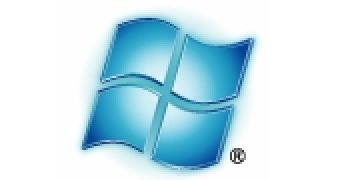It’s not Windows 8, or any new Windows client releases that represent the future in terms of operating system evolution for Microsoft, according to one of the greatest minds in Redmond. After working on products such as Windows Vista and Windows 7, Technical Fellow Mark Russinovich hesitated little to jump ship to what he hopes will become THE platform for an emerging computing paradigm which is yet nascent at best.
Earlier this month, Russinovich revealed that he’s working to produce an equivalent of Windows 3.1 of the Cloud. He is of course, talking about Windows Azure.
At the bottom of this article users will be able to find embedded the video of the “Inside Windows Azure, the Cloud Operating System with Mark Russinovich” session that the Microsoft Technical Fellow presented at the latest Tech-Ed USA.
“Join Mark Russinovich, now working on Azure, for an under-the-hood tour of the internals of Microsoft’s new cloud OS. Topics include datacenter architecture, cloud OS architecture, and what goes on behind the scenes when you deploy a service, a machine fails or comes online and a role fails,” reads the synopsis of Russinovich’s session at Tech•Ed North America 2011.
Now, in all fairness, the session will be most interesting to developers, partners and customers that are considering the migration from on-premises to the Cloud.
But this does not mean that there aren’t some interesting tidbits in there for the rest of us as well.
I for one, find very interesting Russinovich’s transition from the work on Windows to Windows Azure. The Technical Fellow will surely inspire others to at least consider Microsoft’s Cloud platform as a valid alternative to traditional operating systems.
At the same time, I cannot help but wonder whether the move is actually pointing to an overall shift in focus, resources, strategy, etc. for Microsoft, which needs to evolve beyond Windows client and Windows Server.
The Cloud certainly provides the perfect paradigm for this, especially since the software giant has emphasized time and again that it views the entire IT universe transition to an as-a-service basis.
Microsoft’s work to take Windows everywhere by putting it on every device possible is illustrative of its multiple screens and the Cloud vision, in which Windows as a Cloud / device / PC / etc. platform would keep users seamlessly connected.
Windows Azure has been launched for quite some time, but I’m curious to hear whether you regard it as the Windows 3.1 of the Cloud. What do you think?

 14 DAY TRIAL //
14 DAY TRIAL //